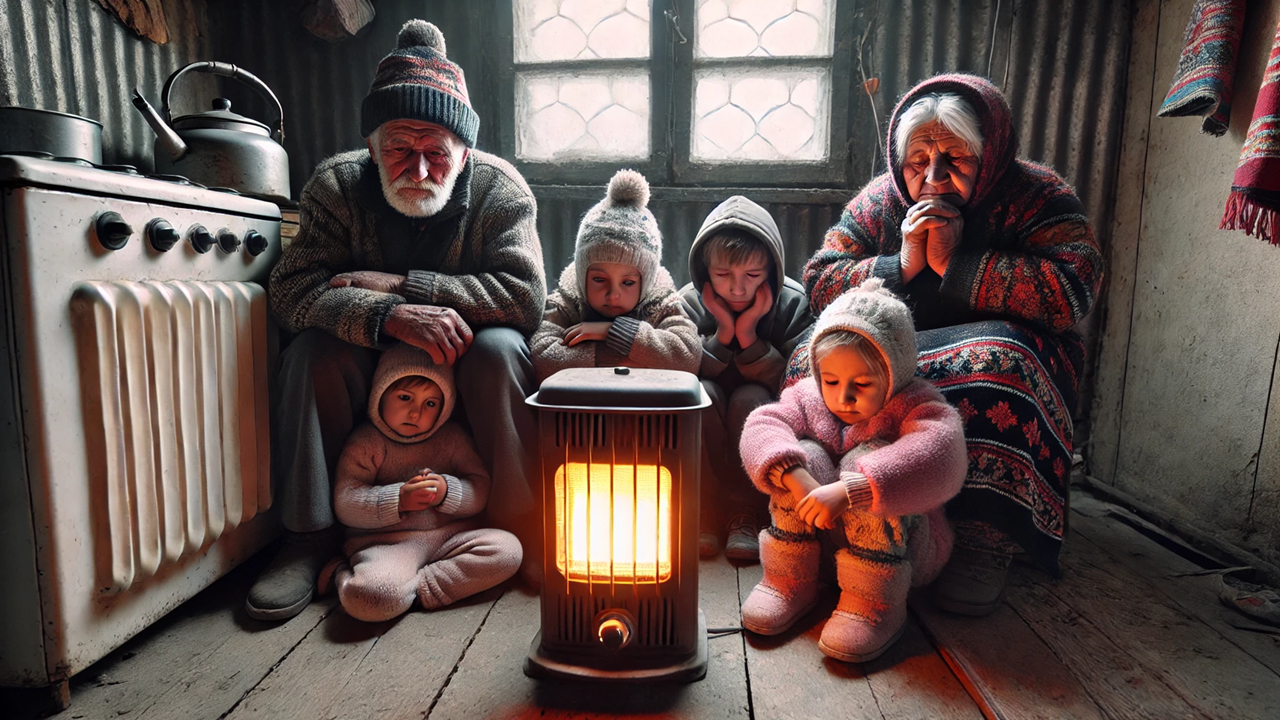Battling the Darkness: Bulgaria's Struggle with Energy Poverty
Bulgaria faces a significant challenge with energy poverty amid rising energy prices. A World Bank study outlines various approaches to define and measure energy poverty, emphasizing the need for multidimensional measures and enhanced data collection. Key recommendations include exploring smart meters, developing targeted policies, and fostering collaboration among stakeholders to mitigate the adverse impacts on vulnerable populations.

As energy prices soar in the wake of the European Green Deal and the crisis in Ukraine, Bulgaria faces a new and pressing challenge: energy poverty. This phenomenon, defined as the inability of households to afford essential energy services, has become a critical issue for Bulgaria's social inclusion and poverty alleviation policies. A recent World Bank study, "Conceptualizing and Measuring Energy Poverty in Bulgaria," delves into this issue, offering valuable insights and recommendations to better define, measure, and combat energy poverty in the country.
Defining Energy Poverty
Energy poverty is more than just high utility bills. It's a multidimensional issue that impacts the well-being of vulnerable populations. The World Bank study highlights various approaches to defining and measuring energy poverty, each with its strengths and weaknesses.
Access-Based Approach This method focuses on the share of the population without access to basic energy services like electricity and clean cooking fuels. While it highlights the most deprived regions and populations, it fails to consider the quality and reliability of energy access or variations in household energy needs.
Expenditure-Based Measures These measures define energy poverty based on the percentage of household income or expenditure on energy. For instance, households spending more than 10% of their income on energy are considered energy-poor. Another metric, the Low-Income-High-Cost (LIHC) measure, identifies households with high energy costs and low incomes. While easy to calculate, these measures can oversimplify energy poverty, ignoring the quality and quantity of energy services.
Consensual Approaches Based on self-reported perceptions of energy deprivation, these approaches capture different energy demands but can be subjective and less comparable across different households and regions.
Outcome-Based Approaches Focusing on outcomes like cold-related deaths or arrears on utility bills, these methods offer direct and observable measures but can be confounded by other factors such as public infrastructure and income levels.
Multidimensional Measures Combining various indicators to reflect different aspects of energy deprivation, these measures provide a holistic view but require subjective choices on which indicators to include and how to weight them.
Big Data Approaches Utilizing satellite, mobile phone, and social media data for real-time, granular measurement, these innovative methods can offer detailed insights but raise ethical and privacy concerns and require advanced data science skills.
Energy Poverty in Bulgaria
The study's findings reveal significant variations in energy poverty rates in Bulgaria depending on the measurement method used. The ten percent measure, for instance, shows a higher incidence of energy poverty compared to other expenditure-based metrics. The Low-Income-High-Cost (LIHC) measure indicates that around 7.1% of Bulgarian households are energy poor, a figure that aligns with recent official definitions but uses actual household expenditure data instead of modeled data.
The study emphasizes the complexity of energy poverty and the need for a multidimensional approach to fully capture its impact. It also highlights the importance of accurate and comprehensive data collection to inform effective policy development.
Policy Recommendations
To tackle energy poverty effectively, the study recommends a shift from single-indicator measures to multidimensional approaches. This shift will provide a more comprehensive understanding of energy poverty and help develop targeted policies to address it.
Key recommendations include,
Enhanced Data Collection: Improving the granularity, quality, and frequency of income and expenditure surveys.
Smart Meters: Exploring alternative data generation methods like smart meters to enhance insights into energy poverty dynamics.
Targeted Policies: Developing policies that consider the different dimensions and population subsets affected by energy poverty.
Collaborative Effort: Involving various stakeholders, including government ministries, academic institutions, and local communities, in the effort to define and monitor energy poverty.
Addressing energy poverty in Bulgaria requires a collaborative, multidimensional approach. Accurate indicators and targeted policies are essential to mitigate the adverse impacts of energy poverty on vulnerable populations. By adopting these strategies, Bulgaria can ensure a fair and equitable energy transition, in line with the European Green Deal's goals, and improve the well-being of its citizens.
- FIRST PUBLISHED IN:
- Devdiscourse
ALSO READ
IDB, World Bank, and CAF Unite to Tackle Transnational Organized Crime in Latin America and the Caribbean
Sint Maarten and World Bank Sign $25M Agreement to Enhance Water Quality and Infrastructure
World Bank Issues USD 225 million Amazon Reforestation-Linked Outcome Bond
Bulgaria's BRIA Partners with World Bank for Strategic Road Sector Development
World Bank Mobilizes €2.5 Billion for Sustainable Development










